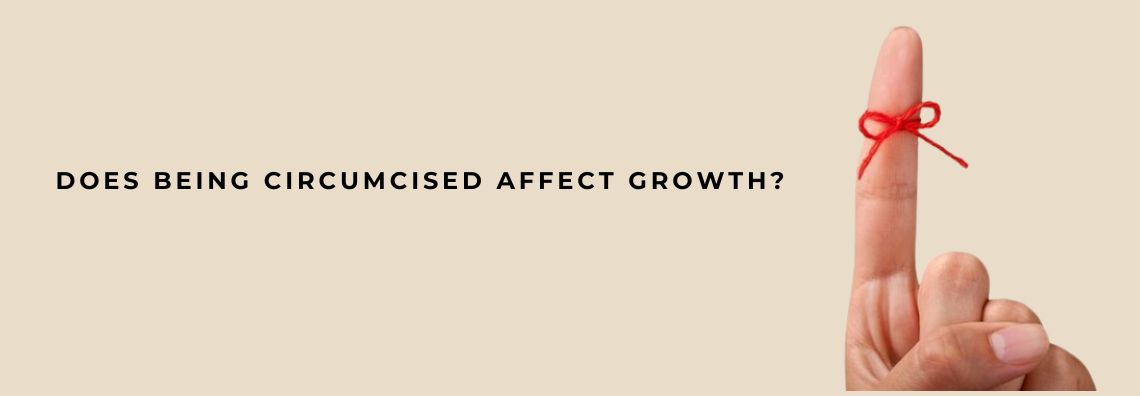
Okay, let’s talk about something people sometimes whisper about but never really ask out loud: Does circumcision affect growth? You might have heard rumors, myths, or just had a random thought pop into your head one day—so let’s clear it up once and for all.
First, What Even Is Growth?
Before we jump into the circumcision section, let’s talk about what growth is. Growth is anything from growing taller, becoming muscular, developing during puberty, and essentially becoming an adult. Who are some of the big players in this process? Hormones.
Your body has a whole system designed to make you grow, and your brain, especially the pituitary gland, regulates most of it. It sends hormones such as GH, testosterone, and many more important chemicals to tell your bones, muscles, and everything else to grow.
Now, here’s the critical point: none of these hormones are influenced by whether you are circumcised or not.
What Does Circumcision Surgery Actually Do?
Circumcision surgery is simply the removal of the foreskin from the penis. That’s it. It doesn’t touch any glands, doesn’t mess with hormone production, and doesn’t interfere with your body’s ability to grow. It’s a small procedure that happens on the surface—far from where the actual growth processes happen inside your body.
Still not convinced? Let’s break it down even further.
Why Do People Think Circumcision Affects Growth?
A few reasons why people might believe this myth:
It involves a body part related to masculinity. Some of them think that any change on the reproductive part would affect the testosterone or even puberty. The thing is that testosterone is actually produced in the testes and is left totally untouched by circumcision.
Cultural beliefs. For some people, it is coupled with initiation rites or being matured, which would make a person believe that it has a profound impact on growth. But that’s just symbolic and not science.
Confusion with other diseases. Some medical diseases do cause one to stop growing, like deficiencies in hormone secretion or genetic abnormalities, but these have nothing to do with circumcision.
Misinformation on the internet. Many myths of little scientific evidence are duplicated and spread around because most people do not verify through credible sources.
Personal bias. People sometimes assume things based on their own experiences or cultural influences. Still, positive anecdotal stories are not considered scientific evidence.
Scientific Evidence: What Do Doctors Say?
Doctors, scientists, and researchers have studied the issues of circumcision for years. The results? Circumcision has absolutely no impact on any of the following: height, muscle mass, puberty, or overall growth.
Pediatricians and urologists agree that circumcision is merely a surgical or cultural choice, not a biological determinant of growth. In other words, medical science gives this myth a big fat NOPE.
What About Sensitivity?
Some people mix up growth with sensitivity issues. Circumcision may slightly impact sensitivity in some men after some time, but that has absolutely nothing to do with height, muscle development, or puberty. Those are different conversations entirely.
The body heals, and circumcision does not interfere with sexual function or reproductive health. The rumors that circumcision negatively impacts fertility or hormone levels? Also, debunked.
So, What Actually Affects Growth?
Since we’re on the topic, let’s look at things that do influence how you grow:
- Genetics: If your parents are tall, chances are you are too, and if they are short well… I guess you won’t dunk on the basketball court.
- Nutrition: Proper growth calls for a well-balanced diet comprising protein, vitamins, and minerals.
- Exercise: Staying active helps develop muscles and keeps the body healthy.
- Sleep: Growth hormone is liberated when you sleep, so don’t forget about getting enough rest.
- Hormones: Any dysfunction in the levels of growth hormones, thyroid hormones, or testosterone will dictate the development, but once again, circumcision has nothing to do with the systems.
- Medical conditions: Some diseases or deficiencies can be in charge of your slow growth, and they certainly don’t have anything to do with circumcision.
So, if you want to grow taller, stronger, or perfect, focus on proper diet, sleep, and exercise, but not being circumcised.
Busting More Circumcision Myths
- Does Circumcision raise or lower testosterone? No, the testosterone level is just the same.
- Will it spur or delay the onset of puberty? No, puberty is hormonal and not controlled by foreskin.
- Does it matter in adult height? Again, no effect whatsoever.
- Can circumcision affect fertility? No, circumcision will not affect your fertility; It does not interfere with the reproductive ability.
- Will being uncircumcised make you grow taller? Nope. No scientific backing for this at all.
Final Answer: Circumcision & Growth? No Connection.
Circumcision is just a minor surgical procedure with no effect on your growth, height, puberty, or muscle development. The myths and rumors? Just that—myths. If anyone tells you otherwise, you can confidently tell them the science says nope!
So, whether someone is circumcised or not, they’ll grow the way their body is meant to. No difference, no secret superpowers, no disadvantages. Just science doing its thing.
Just check credible medical sources if you ever have doubts instead of taking something floating online as true. And remember, your growth depends on what you eat, how you sleep, and your genes, not if you had minor surgical procedures when you were a baby.
I hope this clears up things once and for all!